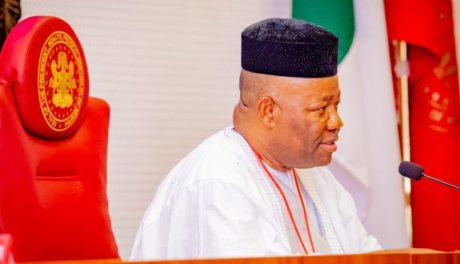In response to the recent landmark Supreme Court decision granting financial autonomy to Nigeria’s 774 local government areas, public discourse has intensified regarding the future of electoral processes at the grassroots level. Many voices across the nation have advocated for the abolition of State Independent Electoral Commissions (SIECs), arguing that these bodies are often beholden to state governments. Critics assert that SIECs’ ties to state authorities perpetuate a cycle of electoral manipulation and irregularities, undermining the autonomy and integrity of local government elections.
These concerns stem from fears that state governments, through their influence over SIECs, could continue to exert control over local councils. This control extends not only to political autonomy but also to financial independence, despite the Supreme Court’s ruling aimed at bolstering local governance. Citizens and analysts alike stress that for true autonomy to be achieved, electoral processes must be overseen by an impartial body like the Independent National Electoral Commission (INEC), which is perceived as less susceptible to state-level interference.
Understanding the Supreme Court Ruling
The Supreme Court’s decision, prompted by a case brought forth by the Attorney General of the Federation, Lateef Fagbemi, SAN, marks a significant shift in Nigeria’s governance landscape. The ruling mandates that all funds allocated to local councils be directed straight to their coffers rather than passing through joint state-local government accounts. This directive aims to curb the longstanding practice of state governments appropriating local government funds for purposes beyond their intended use, often to the detriment of local development initiatives.
By centralizing financial control within local government jurisdictions, the court’s decision seeks to empower grassroots administrations to manage their resources independently. This move is seen as pivotal in fostering genuine local development and ensuring that funds earmarked for community welfare are utilized transparently and effectively. Advocates of the ruling anticipate that it will pave the way for a more accountable and responsive system of governance at the local level, aligning with broader efforts to strengthen democratic principles across Nigeria.
This dual narrative surrounding the Supreme Court ruling and the proposed reforms to electoral oversight underscores a pivotal moment in Nigeria’s political evolution. As stakeholders debate the implications of these developments, the future of local governance and electoral integrity hangs in the balance, poised for potential transformation under a redefined framework of governance and accountability.
The Bill: A New Era for Local Government Elections
On Thursday, July 18, the Senate introduced a transformative bill aiming to establish the Local Government Independent Electoral Commission. This legislation, officially titled the “Local Government Independent Electoral Commission (Establishment) Bill, 2024,” marks a significant step towards enhancing the autonomy and efficiency of local government elections across Nigeria. Sponsored by Sani Musa of the All Progressives Congress (APC) representing Niger East, the bill has successfully passed its first reading in the Senate, setting the stage for further legislative scrutiny and debate.
The primary objective of this bill is to create the National Independent Local Government Election Commission (NILGEC). This new body will be entrusted with the critical responsibility of organizing, overseeing, and conducting elections for local government chairmen and councilors in all 36 states of Nigeria, as well as the Federal Capital Territory (FCT). The establishment of NILGEC aims to ensure that local government elections are conducted in a free, fair, and transparent manner, thereby strengthening grassroots democracy and governance.
Seeking the Creation of NILGEC
The introduction of the Local Government Independent Electoral Commission (Establishment) Bill, 2024, is seen as a pivotal move towards decentralizing electoral processes and empowering local governments. By establishing NILGEC, the bill seeks to eliminate the influence of state governments in local elections, thereby promoting greater independence and credibility in the electoral process. This move is expected to enhance public trust and participation in local governance, as it addresses longstanding concerns about electoral malpractices and irregularities at the grassroots level.
Proponents of the bill argue that the establishment of NILGEC will lead to more accountable and responsive local government administrations. With an independent body overseeing elections, local leaders will be more likely to focus on the needs and aspirations of their communities, rather than political affiliations or pressures from state governments. This, in turn, could lead to improved service delivery and development outcomes at the local level, as elected officials will be more attuned to the priorities and concerns of their constituents.
The Local Government Independent Electoral Commission (Establishment) Bill, 2024, represents a significant legislative effort to enhance the integrity and efficiency of local government elections in Nigeria. By establishing NILGEC, the bill seeks to create a more transparent and accountable electoral process, thereby strengthening grassroots democracy and fostering better governance at the local level. As the bill progresses through the legislative process, it will undoubtedly spark important discussions about the future of local government elections and the broader democratic landscape in Nigeria.
Functions and Powers of NILGEC
The National Independent Local Government Electoral Commission (NILGEC) has been vested with significant responsibilities to ensure the integrity of local government elections. One of the primary functions is to conduct free, fair, and transparent elections for Local Government Chairmen and Councillors. This involves comprehensive planning and meticulous execution to prevent any electoral malpractices. NILGEC also focuses on voter education and public awareness, making sure that citizens are well-informed about the electoral process, their rights, and the importance of their participation.
To maintain the accuracy and credibility of elections, NILGEC is tasked with preparing and maintaining an up-to-date voter register. This includes regular updates and validation to ensure only eligible voters are listed. Additionally, NILGEC sets and enforces electoral guidelines and regulations, providing a clear framework within which elections are conducted. Monitoring and supervising all electoral activities and processes are critical to this mandate, ensuring adherence to established guidelines. Recruitment and training of electoral officers and staff are also part of NILGEC’s duties, aimed at fostering efficient election management. Moreover, NILGEC is responsible for investigating and adjudicating electoral disputes and grievances, ensuring that any issues arising during the electoral process are promptly and fairly addressed.
Structure and Independence of NILGEC
According to the bill establishing NILGEC, the commission will be structured with a chairperson and six commissioners, all appointed by the president and confirmed by the Senate. The chairperson and commissioners will serve a five-year term, with the possibility of one renewal. This structure is designed to provide a robust governance framework capable of managing the complexities of local government elections. The inclusion of multiple commissioners ensures a diversity of perspectives and expertise, which is crucial for the effective functioning of the commission.
NILGEC’s operational independence is a cornerstone of its establishment. The bill explicitly states that NILGEC will operate without external interference, ensuring that its decisions and actions are free from political influence. This independence is further reinforced by its budget, which will be approved by the National Assembly. Financial autonomy is essential for NILGEC to function effectively, as it ensures that the commission has the necessary resources to carry out its mandates without undue influence from other governmental bodies.
NILGEC’s Role in the Electoral Process
NILGEC is tasked with overseeing various aspects of the electoral process, from voter registration to the actual conduct of elections. The commission will determine the procedures for voter registration, nomination of candidates, and the overall conduct of elections. Providing electoral materials and logistics is also within NILGEC’s purview, ensuring that elections are conducted smoothly and efficiently. The commission is responsible for publishing the election schedule at least six months before the election date, allowing ample time for preparation and voter awareness campaigns.
Electoral offences, such as voter fraud, ballot stuffing, and electoral violence, fall under NILGEC’s jurisdiction. The commission has the authority to determine and enforce penalties for these offences, ensuring that perpetrators are prosecuted and punished according to the law. NILGEC is also expected to collaborate with governmental and non-governmental agencies to ensure that elections are free from violence and credible. This collaboration is crucial in maintaining a peaceful and fair electoral environment. Upon its establishment, NILGEC will take over all powers and responsibilities of the State Independent Electoral Commissions (SIECs), centralizing the management of local government elections under one independent body.
Mixed Reactions and Analysts’ Insights
The establishment of NILGEC has generated mixed reactions among Nigerians. Some citizens and analysts argue that creating a new commission dedicated to local government elections is necessary to ensure a more autonomous and credible electoral process. Dr. Aisha Jummai, a Public Affairs analyst, notes that NILGEC addresses the need for a more independent and transparent electoral process at the local level. She highlights the importance of the commission’s ability to maintain its independence and resist political pressure to achieve its objectives.
On the other hand, some critics contend that the establishment of NILGEC could result in unnecessary duplication of responsibilities and wastage of resources. They argue that the existing Independent National Electoral Commission (INEC) should be empowered to handle local government elections instead of creating a new body. These critics believe that in light of the current economic reforms, it is crucial to avoid additional expenditures on new agencies. They emphasize that efficient resource allocation should prioritize existing structures rather than expanding the bureaucratic framework.
Table of Contents
Discover more from OGM News NG
Subscribe to get the latest posts sent to your email.














